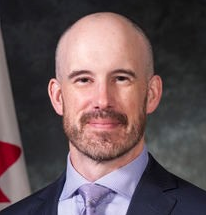Important: The GCConnex decommission will not affect GCCollab or GCWiki. Thank you and happy collaborating!
Renewing the GC Data Strategy
Led by the Office of the Chief Data Officer of Canada at Treasury Board of Canada Secretariat, together with the Privy Council Office and Statistics Canada
In 2018, the Report to the Clerk of the Privy Council: A Data Strategy Roadmap for the Federal Public Service put forward a “whole-of-government approach to creating, protecting, using, managing, and sharing data as a strategic asset”.
Since its publication, the context, priorities, and maturity of the federal data landscape have evolved, and there is a need to update the data strategy to highlight the most important priorities and actions that will allow the government to mature into the future.
>> How familiar are you with 2018’s Data Strategy Roadmap? Answer 2 quick poll questions.
23 June 2022 Engagement Session
Thursday 23 June 2022, 1:30 to 3:00 pm ET.
Have your say and join us to kick-off the Data Strategy Renewal!
As a participant, you'll:
- hear panelists from Privy Council Office, Statistics Canada, and Treasury Board of Canada Secretariat discuss the Renewal scope and goals
- participate in a question and answer session
- provide real-time input on the current and future priorities that should be considered as the strategy is renewed
Speakers
Stephen Burt
Chief Data Officer of Canada, Treasury Board of Canada Secretariat
Kara Beckles
Director General, Data Integration, Privy Council Office
Kara Beckles is Director General of Data Integration at the Privy Council Office, a position she took on during the summer of 2020. Kara previously held several positions across the Government of Canada, most recently at Agriculture and Agri-Food Canada as Director General of the Economic Research and Analysis Directorate and Departmental Data Lead. Kara holds a Bachelor of Arts (Hons.) in economics and business from the University of Winnipeg and a Master of Arts from Dalhousie University.
André Loranger
Assistant Chief Statistician for Strategic Data Management, Methods and Analysis, Statistics Canada
André Loranger is currently the Assistant Chief Statistician for Strategic Data Management, Methods and Analysis. He is also Statistics Canada’s Chief Data Officer responsible for the overall stewardship of the organization’s information data holdings. André, an economist with an M.A. (Economics) degree from the University of Ottawa, began his career in the public service at Statistics Canada in 1997 where he spent most of his career compiling estimates of GDP. Prior to his current position, André was the Director of Producer Prices Division from 2008 to 2012 and the Director General of the Macroeconomic Statistics Branch from 2012 to June 2013. More recently, he was the Assistant Chief Statistician for Economic Statistics responsible for the key economic indicators (CPI, GDP, etc.) produced by Statistics Canada. In recent years, André has been involved in international projects related to economic statistics. He was a member of the United Nations Committee of Experts on Environmental-Economic Accounting, the United Nations Expert Group on International Trade and Economic Globalization Statistics, the United Nations Expert Group on the Future of Economic Statistics and a number of international statistical working groups. André is currently a member of the United Nations Global Working Group on Big Data.
Panel
Alison Kinsman
Title, Privy Council Office
Paul Guerra
Title, Privy Council Office
Crystal Sewards
Manager, Office of the Chief Data Officer, Statistics Canada
Crystal has 30 years of experience working in the Federal Government with a background in data stewardship, data analysis and geomatics. Crystal holds a degree in Human Geography from the University of Ottawa with a specialization in economics and statistics.
Benoit Deshaies
Acting Director of data and artificial intelligence, Treasury Board of Canada Secretariat
Benoit studied computer science at Carleton University in Ottawa. He is acting Director of Data and Artificial Intelligence at the Treasury Board of Canada Secretariat (TBS). He directs the development of the Directive on Automated Decision-Making and the Algorithmic Impact Assessment (AIA). These policy tools ensure that Automated Decision Systems are deployed in a manner that reduces risks to Canadians and federal institutions, and lead to more efficient, accurate, consistent, and interpretable decisions.
Moderator
Name,
Title, Organization
GC Data Community | Contact us | Subscribe | Join us on GCcollab | GC Data Community Partners






